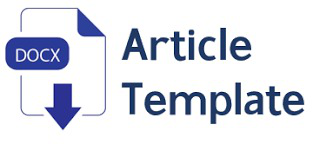Independent Agencies dalam Struktur Ketatanegaraan Republik Indonesia
DOI:
https://doi.org/10.14421/sh.v4i1.1981Abstract
This research studies theoretical construction of independent agencies in constitutional structure of Republic of Indonesia, and aims at researching and positioning its theoretical construction, characteristics, and also the forms of its checks and balances towards the original three branches.
This normative legal research combines perspectives of conceptual approach, as well as statutory, comparative, and historical ones, in which the implementation conducted accordingly by need.
By using the various theories created by some classical and contemporary theorists in term of independent agencies, and limitation of powers themes, as it has been implemented in constitutional law practice and revised in theoretical perspective, the result of this study shows independent agencies are a different branch of government, compare to the conception of Montesquieu’s trias politica. Indonesian constitutional lawpractice attracts fact about an existence of a different branch of government, where it is referred to as the independent agencies. As a new type of separation of power, theoretical construction of independent agencies could be referred to as "The New Separation of Power."
The result of this study also shows independent agencies existance in constitutional structure of Republic of Indonesia is still be placed under primary state agencies, and considered as auxiliary state agencies.
References
Bruce Ackerman, The New Separation of Powers, The Harvard Law Review, vol. 113, HVLR 633 (Jan. 2000).
Denny Indrayana, 2008, Negara antara Ada dan Tiada; Reformasi Hukum Ketatanegaraan, Penerbit Buku Kompas, Jakarta.
Firmansyah Arifin, Fulthony A.M., Lilis Mulyani, Mustafa Fakhri, Narwanto, Patra M. Zein, Zaenal M. Hussein, 2005, Lembaga Negara dan Sengketa Kewenangan Antar Lembaga Negara, Konsorsium Reformasi Hukum Nasional bekerjasama dengan Mahkamah Konstitusi Republik Indonesia, Jakarta.
Jimly Asshiddiqie, 2006, Konstitusi dan Konstitusionalisme Indonesia, Konstitusi Press, Jakarta.
Jimly Asshiddiqie, 2009, Pengantar Ilmu Hukum Tata Negara, Rajawali Pers, Jakarta.
Jimly Asshiddiqie, 2010, Perkembangan & Konsolidasi Lembaga Negara Pasca Reformasi, Sinar Grafika, Jakarta.
Moh. Fajrul Falaakh, "Konstitusi dalam Berbagai Lapisan Makna," dalam Jurnal Konstitusi Mahkamah Konstitusi Republik Indonesia, Volume 3 Nomor 3, September 2006.
Moh. Fajrul Falakh, "Redistribusi Kekuasaan Negara dan Model Hubungan Antarlembaga Negara dalam UUD 1945 Pasca Amandemen," Laporan Penelitan, WCRU-HTN Fakultas Hukum UGM, Yogyakarta, 2009.
Moh. Mahfud MD, 2010, Perdebatan Hukum Tata Negara Pasca Amandemen Kostitusi, Rajawali Pers, Jakarta.
Ni’matul Huda, 2007, Lembaga Negara dalam Masa Transisi Menuju Demokrasi, UII Press, Yogyakarta.
William F. Funk, & Richard H. Seamon, 2001, Administrative Law; Examples & Explanations, Aspen Law & Business, printed in the United States of America, New York.
Yves Meny dan Andrew Knapp, 1998, Government and Politic in Western Europe: Britain, France, Italy, Germany, 3rd edition, Oxford University Press, Oxford.








